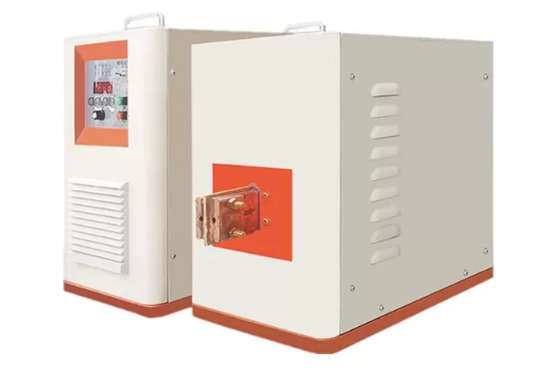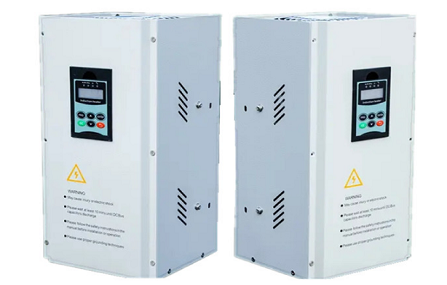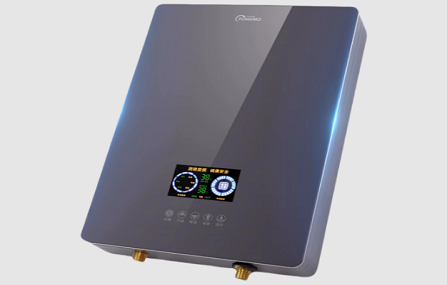Induction coils are an essential component in various industrial applications, including induction heating, induction melting, and induction brazing. These coils generate high-frequency electromagnetic fields that induce currents in conductive materials, leading to heating or melting. Due to the intense heat generated during operation, induction coils often require effective cooling mechanisms to maintain their performance and prevent damage. Water cooling is a widely used method for cooling induction coils, offering several advantages in terms of efficiency, reliability, and safety. In this article, we will explore why induction coils are water-cooled and delve into the benefits of this cooling method.
1. Heat Dissipation:
Induction coils experience significant heat buildup during operation. The high-frequency currents flowing through the coil induce resistive heating, resulting in elevated temperatures. Without proper cooling, excessive heat can lead to coil overheating, degradation, and even failure. Water cooling allows for efficient heat dissipation from the coil. By circulating cool water through the coil, it absorbs heat and carries it away, preventing the coil from reaching critical temperatures and ensuring its optimal performance and longevity.
2. Higher Power Handling:
Water cooling enables induction coils to handle higher power levels. As power levels increase, the amount of heat generated also rises. Water cooling effectively removes heat from the coil, allowing it to withstand higher power densities. This is particularly important in applications that require intense heating or melting processes, where high power levels are necessary. By utilizing water cooling, induction coils can handle the elevated thermal loads associated with high-power operations, enabling efficient and reliable performance.
3. Enhanced Efficiency:
Water cooling significantly improves the overall efficiency of induction systems. By removing heat from the coil, water cooling helps maintain the coil at lower temperatures. Cooler coils exhibit lower resistance and reduced losses, resulting in improved electrical efficiency. With enhanced efficiency, induction systems can achieve higher power transfer and more precise control over the heating or melting process. Water cooling ensures that the energy supplied to the coil is efficiently utilized, leading to improved productivity and reduced operating costs.

40KW/50KW/60KW 200KHz Ultra-High Frequency Induction Heater
4. Thermal Stability:
Water cooling provides thermal stability to induction coils, particularly during continuous or prolonged operation. Heat buildup can cause thermal expansion and contraction of the coil, leading to mechanical stress and potential damage. By maintaining a stable operating temperature, water cooling minimizes thermal cycling and associated stresses, ensuring the structural integrity and reliability of the coil. Thermal stability also contributes to consistent performance and repeatability, critical factors in industrial processes that require precise control over temperature and heating profiles.
5. Safety and Controllability:
Water cooling offers enhanced safety and control compared to alternative cooling methods. The use of water as a cooling medium eliminates the risk of leakage or contamination of harmful substances that may be present in other cooling mediums. Water is non-toxic and readily available, making it a safe and cost-effective cooling option. Additionally, water cooling systems can be designed with control mechanisms to monitor and adjust the cooling process. This allows for precise temperature regulation, ensuring that the coil operates within safe limits and protecting it from thermal damage.
6. Compact Design:
Water cooling provides effective heat dissipation in a relatively compact form factor. Compared to alternative cooling methods, such as air cooling, water cooling can achieve higher cooling rates in a smaller space. This compact design is particularly advantageous in applications where space is limited, such as in induction heating systems integrated into production lines or industrial machinery. The ability to achieve efficient cooling in a compact footprint allows for more flexible and efficient system designs.
7. Flexibility and Adaptability:
Water cooling systems offer flexibility and adaptability to various induction coil configurations and applications. The design and layout of water-cooled induction coils can be customized to fit specific requirements, including coil shape, size, and cooling capacity. Water cooling systems can accommodate different flow rates, pressures, and temperature ranges, allowing for optimization based on the specific heat dissipation needs of the induction coil. This adaptability makes water cooling suitable for a wide range of applications, from small-scale laboratory setups to large industrial processes.
Conclusion
Water cooling is a preferred method for cooling induction coils due to its efficient heat dissipation, increased power handling capacity, enhanced efficiency, thermal stability, safety, compact design, and flexibility. By utilizing water as a cooling medium, induction coil systems can operate reliably, maintain optimal performance, and achieve precise temperature control. Water cooling plays a critical role in ensuring the longevity, efficiency, and safety of induction heating, melting, and brazing processes in various industrial applications.
If you want to know more information about Water-cooled Induction Heating Machine.
Please contact us. We will provide professional answers.






